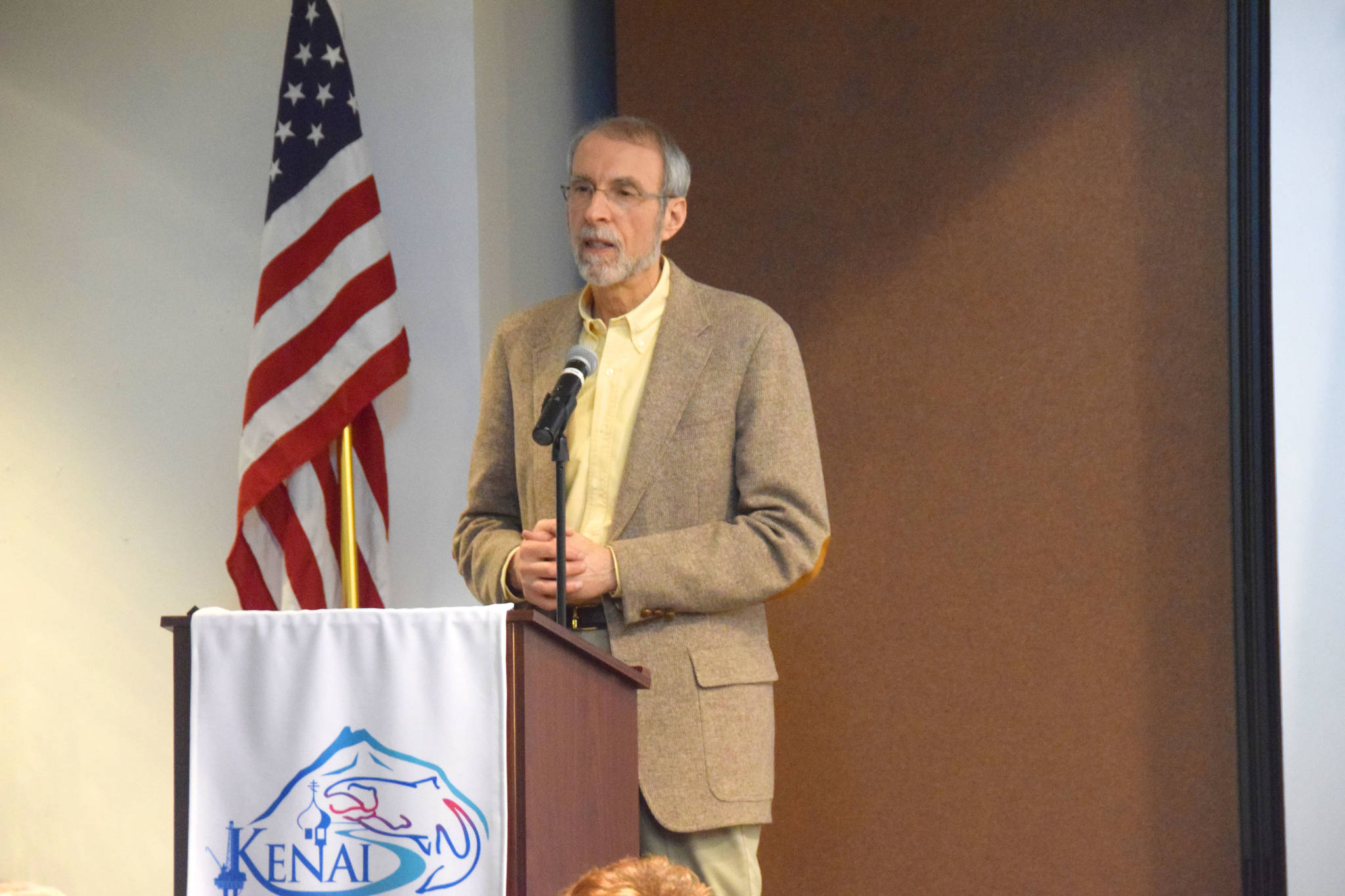Gov. Mike Dunleavy is right. The Legislature and governor the past three years appropriated money for individual Permanent Fund Dividends contrary to the 1982 formula in state statute.
So what. They did it for good reason. They did their job.
The Legislature voted to pass a responsible budget based on Alaska’s fiscal reality, balancing the needs and wants of individuals versus the needs and services of the entire state.
[Opinion: Solve Alaska’s budget problem with a lower PFD]
Despite what the new governor promised voters last fall, communities do not live by dividends alone. Legislators this year again are confronting that decision, again working to find the right balance.
Regardless whether we agree with every decision, it’s the prerogative of legislators to make budget choices that may not always follow the formulas they or their predecessors adopted years or even decades ago. When it comes to those spending decisions, the Alaska Constitution is clear and the courts have agreed: The Legislature each year decides how much to appropriate and for what. With very few exceptions, the constitution does not allow dedicated funds.
Legislators should not ignore state laws at will and a whim, but they have the right and responsibility to make budget decisions. That is their job, and it is our job to decide every election whether we like those decisions. The Permanent Fund Dividend is not the only example of the Legislature making spending decisions that it believes are best for the state.
[Opinion: Education reform is not about the money]
For example, state statute requires cities and boroughs to exempt from property taxes the first $150,000 in assessed value of a home owned by a senior citizen. The law says: “The state shall reimburse a borough or city … for the real property tax revenues lost to it.” Seems clear. But then, in 1986, when oil revenues tanked and the state was in a fiscal crisis, the Legislature stopped fully funding the reimbursements — along with multiple other spending cuts.
Then, in fiscal year 1997, lawmakers stopped appropriating even those reduced payments. It was all over. As the reimbursements ended, cities and boroughs across the state had to fully swallow the cost of the state-mandated property tax exemption.
Yes, the Legislature should have changed the law, taking the reimbursement off the books. But, admittedly, that is a harder political vote, so they avoided it. Still, the decision was clear: The state had to cut spending, and it was either this or something more important to our communities.
Same thing for statutorily mandated state reimbursement of local school construction debt. Over the decades, the Legislature occasionally has short-funded the program, even though the statute says, “the state shall allocate to a municipality” under the formula in law. Legislators made the spending decisions, as is their responsibility. Communities did not like it, but they accepted that the choices are difficult and that the Legislature is accountable for the budget.
[Opinion: Alaska needs a smaller, sustainable budget]
The spending plan that Gov. Bill Walker left behind in December would have appropriated almost $100 million to fund the state’s share of local school bonds for the fiscal year starting July 1. Dunleavy, looking to deliver on an unaffordable Permanent Fund Dividend and a winning campaign promise, wants to eliminate the funding. At least the governor has been upfront about it and introduced legislation to change the law to end all state reimbursement of local school construction debt.
I expect the Legislature will not accept the governor’s proposal to totally walk away from the state’s share of local school construction debt payments. I also suspect they might short-fund the program a bit as they try to close the state’s serious budget deficit — just as lawmakers have done before when confronted with competing needs for a limited number of state dollars.
[Opinion: Day of reckoning for Alaska’s budget has arrived]
It’s the same for the dividend. The law sets out a formula for calculating the dividend, but the Legislature must balance multiple requests for limited dollars. Permanent Fund earnings, as the constitution tells us, are general fund dollars available for the budget, the same as cigarette taxes, oil taxes, motor vehicle registrations and court fines.
Strict adherence to a 37-year-old divided calculation formula is not a responsible way to make overall budget decisions for our communities and our long-term economic health.
The Legislature should exercise its budget powers in setting this year’s dividend, and then should change the formula in the law so that Alaskans can move on to other debates.
Larry Persily is a longtime Alaska journalist and was deputy commissioner of the Alaska Department of Revenue from 1999-2003.
Larry Persily is a longtime Alaska journalist and was deputy commissioner of the Alaska Department of Revenue from 1999-2003.

